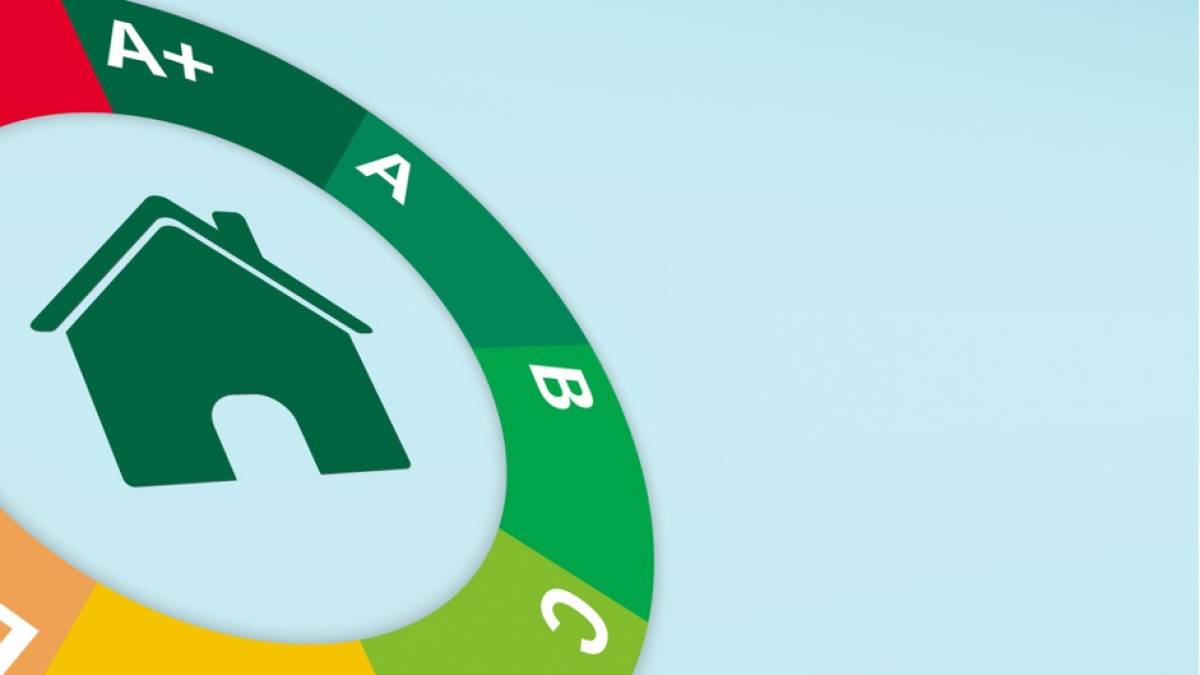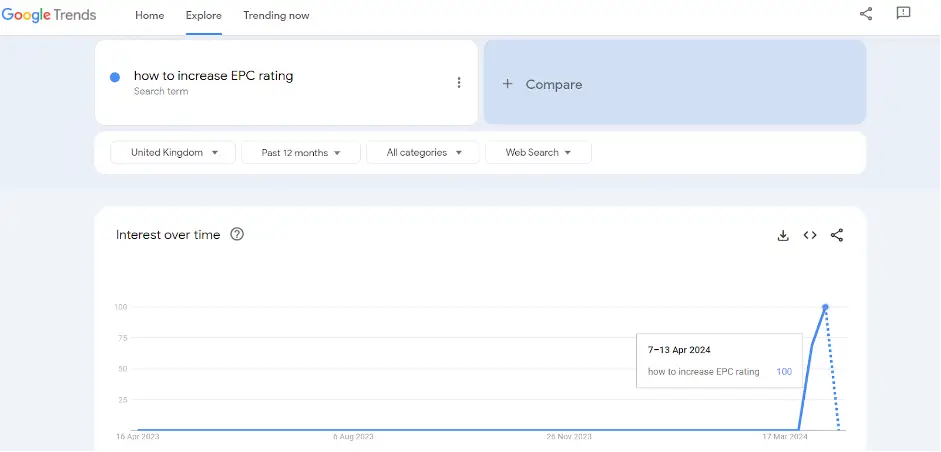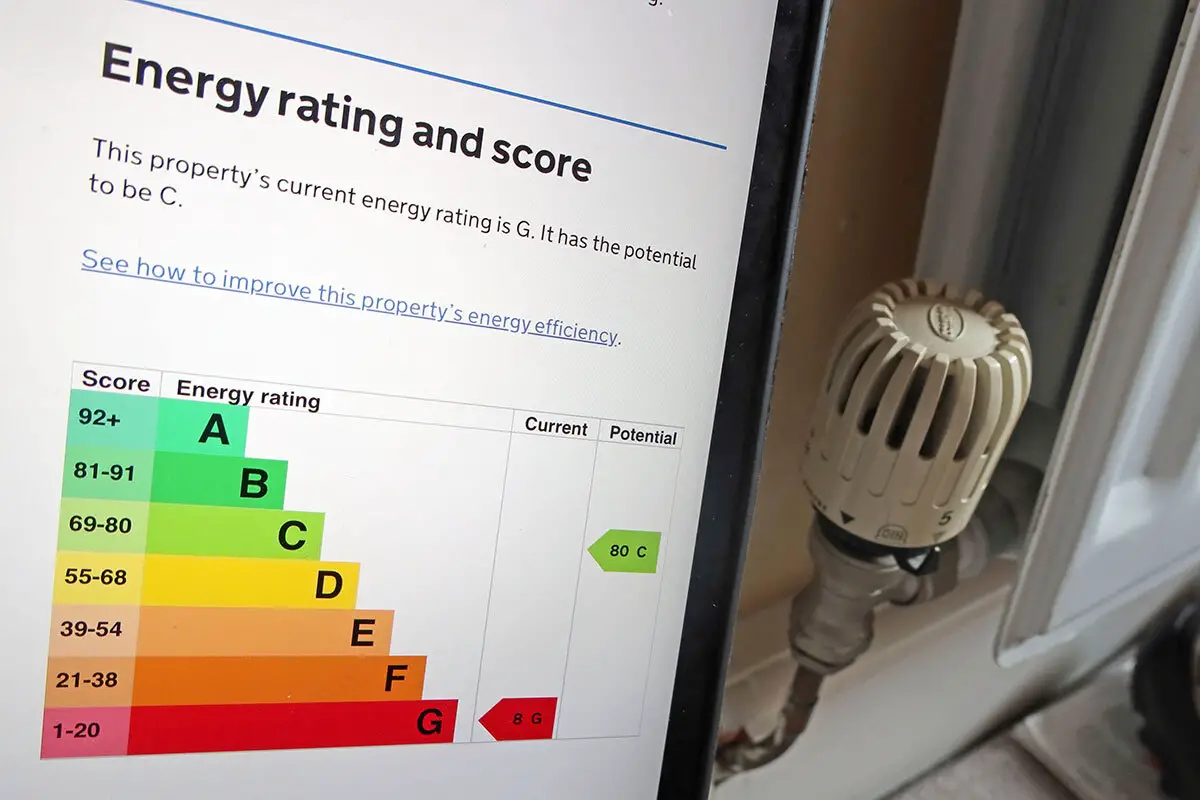How to Improve Your Home’s EPC Rating as Interest Surges

New data discovered by TheEcoExperts.co.uk shows a surge in people in the UK searching for the term “how to increase EPC rating.”
The Google Trends search data shows that this term reached peak popularity from 7th - 13th April 2024.
The energy performance certificate (EPC) is a document required under UK Law whenever a house (or commercial building) is built, sold, or rented out.
EPC’s rating scheme indicates the energy efficiency of buildings or devices.

In light of the recent peak in interest on how to increase EPC rating, an EPC expert and energy assessor shares valuable tips and insights on how to improve your home's EPC rating.
Expert Tips on How to Improve Your Home's Energy Performance

Poto: Alamy.
1. Add an insulating jacket to your hot water tank:
If you get your hot water from a tank, you might want to consider adding (or topping up) its insulating jacket. For best results, aim for around 60mm to 80mm thick. Depending on how much you add, you could see savings of around £50 per year in electricity bills. Doing so can also add a few points toward your property’s EPC rating.
“In an ideal world, you’d eliminate your hot water cylinder altogether. They are effectively large heat emitters that constantly need topping up to stay hot,” explains EPC expert and energy assessor Christopher McFadden.
“However, some properties need them, especially if you have solar water heating or need a lot of hot water. In this case, you should make them as ‘heat tight’ as possible by adding insulating jackets that are as thick as you can get them. Modern hot water cylinders have come a long way over the years, so you can also consider getting one with superb factory-fitted insulation, too.”
2. Replace your light bulbs:
Replacing old-fashioned incandescent bulbs with compact fluorescent lamps or LED bulbs could score a few points on your EPC rating. You could also save money in the long run - for a typical 60-watt incandescent bulb; you’ll average around 1,200 hours of lighting before it needs to be replaced. A 6-watt LED bulb, on the other hand, will last upwards of 60,000 hours.
Christopher McFadden explains:
“Inefficient lighting, like old incandescent bulbs or spotlights, can significantly increase your electrical bill if used for a long period of time. Switching them for CFLs or LEDs is one of the simplest and cheapest ways to save you a pretty penny while also improving your EPC rating a little.”
3. Get cavity wall insulation:
As most modern UK homes have a gap between the walls, cavity insulation has become the most common type. It’s also relatively cheap, averaging around £370–£500 for a typical UK home.
However, this is not always appropriate for your home, especially if it has a narrow cavity like most 1930-1950s properties. If you have an EPC, it should detail if this is the case. Once installed, you’ll see a substantial benefit to your home’s energy efficiency if appropriate.
“Cavity wall insulation is another great way to boost your EPC rating while also saving money," explains Christopher McFadden. "However, you might want to get some expert advice, as installing it in homes that are not appropriate can cause major headaches in the future, like condensation and mould."
“Apart from older early narrow cavity walled properties, homes in high wind-driven areas or have damaged walls are not advised to get cavity wall insulation,” Christopher notes.
4. Replace your old boiler:
Your heating system greatly impacts your home’s EPC rating, and making it more efficient can add many points. When you install a new boiler, your EPC rating could rise by as much as 40 points. The minimum EPC rating is 39, so getting a new boiler could help you reach the required standard even if you don't do anything else.
Consider replacing your boiler with a heat pump, as these renewable devices are three times more efficient than boilers. Heat pumps cost anywhere from £7,000 to over £30,000 to buy and install, depending on the size of your home and the type of heat pump you’re getting, but with the Government’s Boiler Upgrade Scheme, you could get £7500 towards these costs
“The boiler is the home’s primary method of heating. For this reason, it is understandable why switching it out for the most efficient model is the best way to boost your EPC rating. It will also save you tons of money, especially if you have older conventional or back boilers,” Chris explains. “Like many things in life, however, ensure you get expert advice before going down this road, and check for potential grants or other finance you can get to help with the cost.”
However, you can do other simple things to help reduce your heating bills that are not necessarily beneficial to your EPC rating.
“Some other measures that are not always reflected on an EPC include draughtproofing your home,” explains Chris. “It is a shame to waste energy heating air in your home only to have it ‘leak’ outside, so make your home as ‘airtight’ as possible,” Chris adds.
“You should also look at blocking off old unused fireplaces,” Chris concludes.


















![[node:title]](/sites/default/files/styles/video_thumbnail_bottom/public/guy_with_unshaven_skin_face_young_skin_care_routine_beard.jpg?itok=qE9bZ04g)

